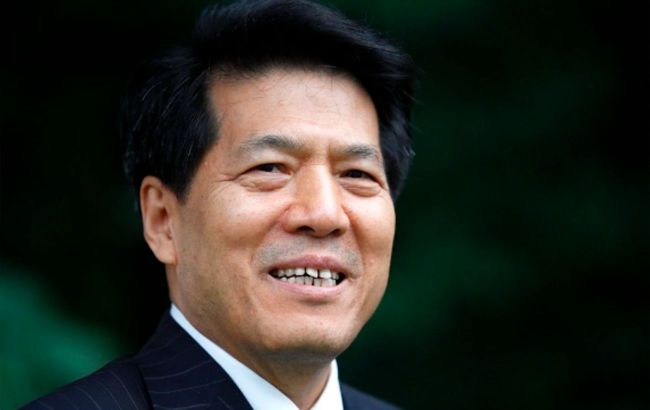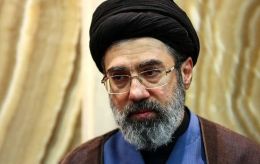China's neutrality in Russia-Ukraine war: Beijing's diplomatic gambit and its motives
 Chinese Special Envoy for Eurasian Affairs Li Hui (Photo: Getty Images)
Chinese Special Envoy for Eurasian Affairs Li Hui (Photo: Getty Images)
Chinese Special Envoy for Eurasian Affairs Li Hui recently visited Kyiv. The visit was dedicated to exploring opportunities for resolving the Russian-Ukrainian war. Despite the stated "candid and friendly" tone of the negotiations, it seems that the second attempt was as unsuccessful as the first.
More details about Li's negotiating tour, China's position, and whether to expect a restart of the peace process can be found in the material by RBC-Ukraine.
Sources: Statements from the Chinese Ministry of Foreign Affairs, Office of the President of Ukraine, material from Reuters, Bloomberg, and the South China Morning Post, and comments from Ukrainian Institute for the Future analyst Iliya Kusa.
Content:
- Who is Li Hui, what happened before, and why did he go on tour again
- Attempt #2. What is known about the second round of the Chinese peace initiative
- Peace formulas, China's position, and why Ukraine needs its support
- Should we expect a restart of the peace process after Li Huey's visit
Who is Li Hui, what happened before, and why did he go on tour again
The second round of Chinese boat diplomacy kicked off last week. Special Envoy for Eurasian Affairs Li Hui has already visited Russia, the EU headquarters in Brussels, Poland, and Ukraine, and intends to meet with German and French diplomats. However, it's still unclear whether the results will differ from those of the first tour in 2023. And is Beijing really interested in ending the war, considering that the West is depleting its resources while Russia is becoming increasingly dependent on China?
As for the negotiator himself, Li is 70 years old, and he began his diplomatic career in 1975 in the Soviet-European Department of the Chinese Ministry of Foreign Affairs. After the collapse of the USSR, he served as the first secretary of the embassy in Russia, and then as the first secretary and counselor of the embassy in Kazakhstan. He climbed the career ladder at the Ministry of Foreign Affairs, and from 2009 to 2019, he was the ambassador to Moscow. He even received the Order of Friendship from Vladimir Putin.
As a mediator in peace talks, Li attempted to intervene after the April conversation between President Volodymyr Zelenskyy and Chinese President Xi Jinping. During the first round of boat diplomacy from May 15 to 26, 2023, he discussed political settlement with Ukraine, Poland, France, Germany, the EU, and Russia.

Photo: Li Hui in 2023 had already visited Ukraine and supposedly suggested recognizing the Russian occupation of territories in Europe (Getty Images)
Then Li outlined a list of steps that China could take (without condemning Russia): the return of deported children, support for a grain corridor, and assistance in securing the captured Zaporizhzhia Nuclear Power Plant. However, this did not lead to progress or agreements, essentially boiling down to formalities. Kyiv praised Beijing for respecting Ukraine's integrity, while Moscow applauded its efforts to "resolve the conflict diplomatically."
The May visit coincided with preparations for the summer counteroffensive. Ukraine did not seek negotiations with Russia, hoping that the liberation of territories would strengthen its position. Now Li has arrived against the backdrop of the withdrawal of Defense Forces from Avdiivka, problems with Western aid, and limited successes of the Russian army on the front lines. Last time, as reported by Western media, he proposed that Europe recognize the occupation of territories for a ceasefire. Now Ukraine appears weaker than it did a year ago, and it's possible that there was a calculation of its compliance.
"Perhaps, but why the visit happened yesterday actually doesn't matter. It could be related to the situation on the front lines, the second anniversary of the invasion (China came up with peaceful proposals before the first one), or because we are advancing the Peace Summit and want to invite many countries, including China. Maybe they wanted to talk about peace before deciding whether to participate in the summit proposed by Volodymyr Zelenskyy," says Iliya Kusa, an analyst at the Ukrainian Institute for the Future.


